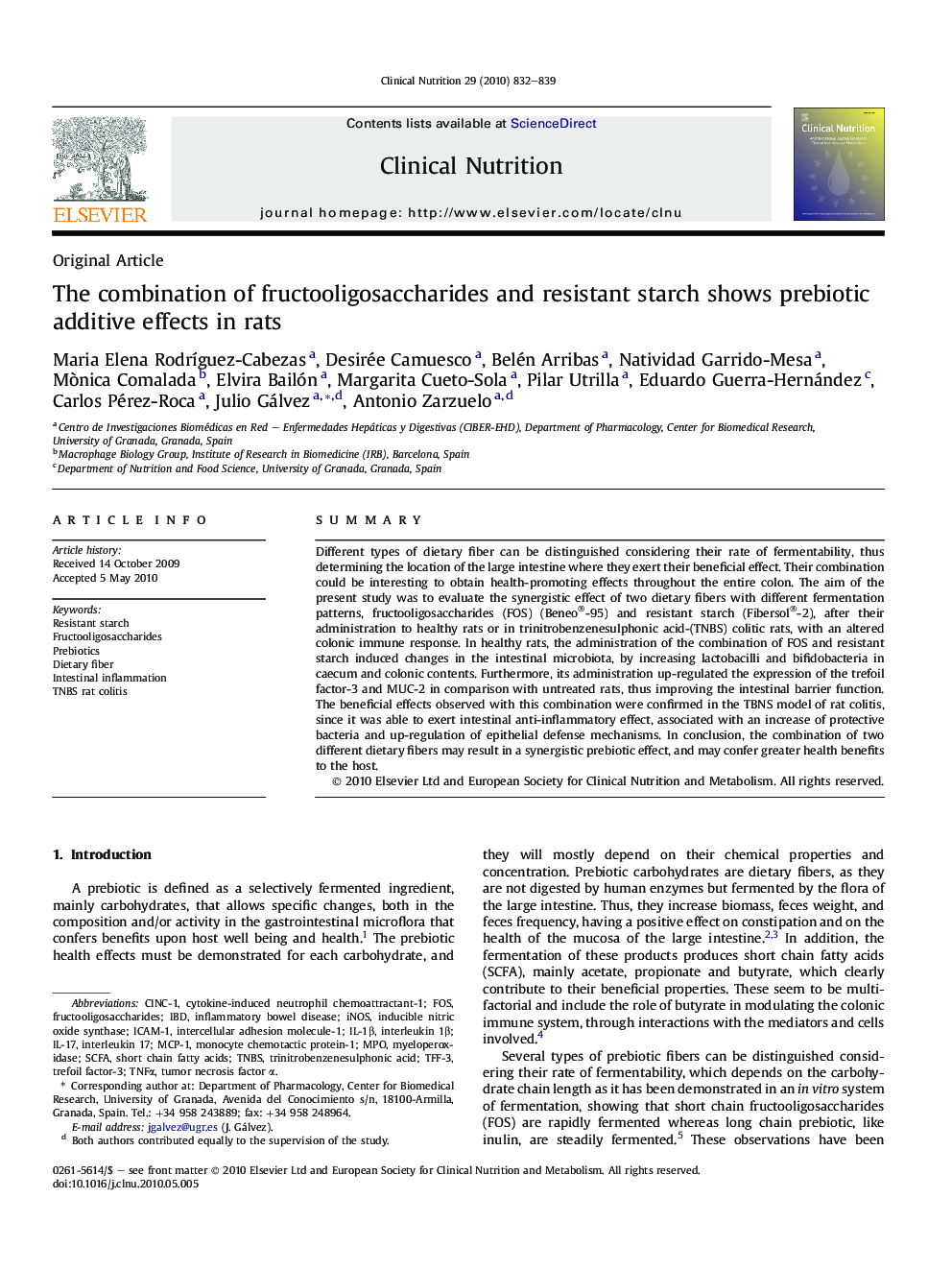| Article ID | Journal | Published Year | Pages | File Type |
|---|---|---|---|---|
| 2684257 | Clinical Nutrition | 2010 | 8 Pages |
SummaryDifferent types of dietary fiber can be distinguished considering their rate of fermentability, thus determining the location of the large intestine where they exert their beneficial effect. Their combination could be interesting to obtain health-promoting effects throughout the entire colon. The aim of the present study was to evaluate the synergistic effect of two dietary fibers with different fermentation patterns, fructooligosaccharides (FOS) (Beneo®-95) and resistant starch (Fibersol®-2), after their administration to healthy rats or in trinitrobenzenesulphonic acid-(TNBS) colitic rats, with an altered colonic immune response. In healthy rats, the administration of the combination of FOS and resistant starch induced changes in the intestinal microbiota, by increasing lactobacilli and bifidobacteria in caecum and colonic contents. Furthermore, its administration up-regulated the expression of the trefoil factor-3 and MUC-2 in comparison with untreated rats, thus improving the intestinal barrier function. The beneficial effects observed with this combination were confirmed in the TBNS model of rat colitis, since it was able to exert intestinal anti-inflammatory effect, associated with an increase of protective bacteria and up-regulation of epithelial defense mechanisms. In conclusion, the combination of two different dietary fibers may result in a synergistic prebiotic effect, and may confer greater health benefits to the host.
